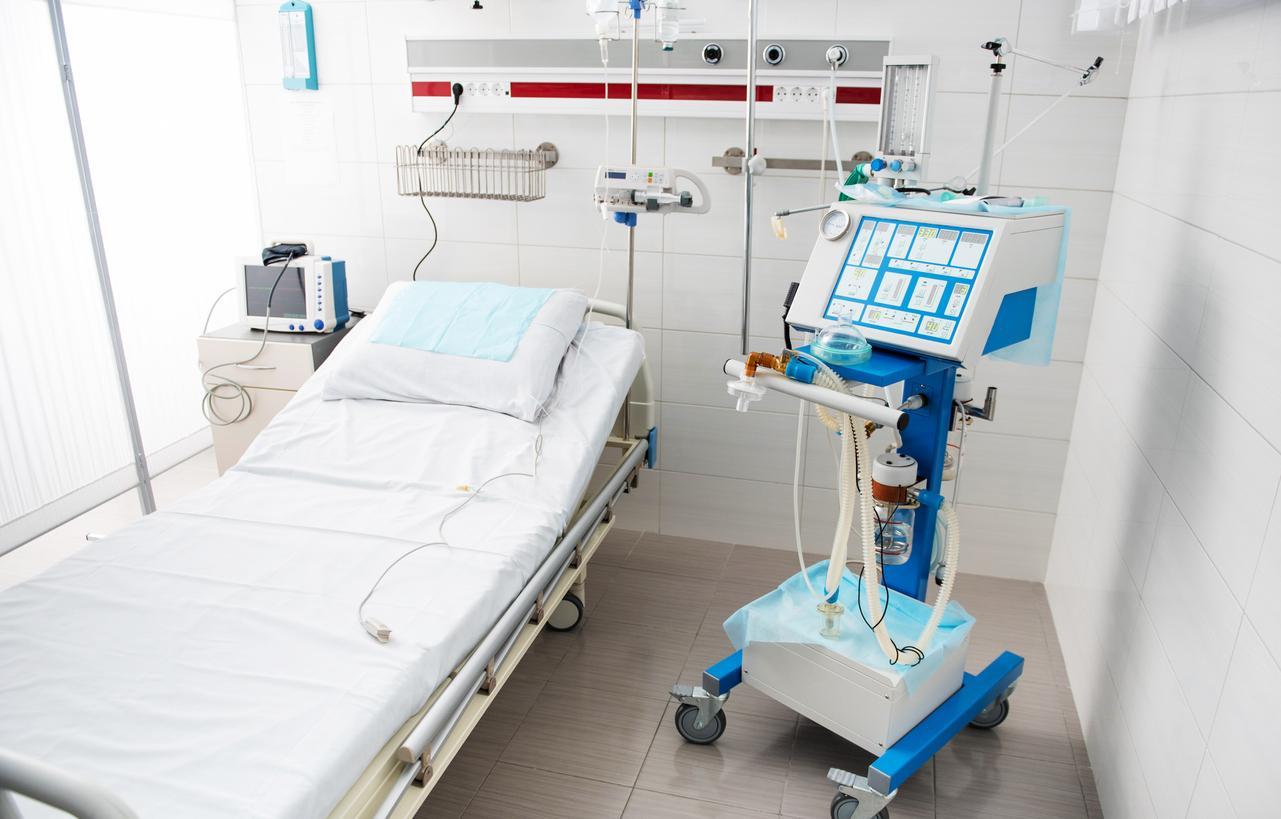Nurses are often nervous about clinical placements. Clinical placement is one of the most challenging parts of being a nurse. It introduces you to another phase of life and has its challenges. Many nurses are terrified on their first day at work because they have just left nursing school and have not familiarized themselves with the industry. They start worrying about their colleagues, patients and even their managers. Some nurses feel intimidated by other experienced staff.
This article aims to help you feel at ease with your clinical placement. You’ll need some tips to navigate the placement, and it is important to be prepared.
What is clinical placement?
A clinical placement is an arrangement where a student is sent to an environment that provides healthcare services to patients or the public. Placements can be primary, secondary, community or other health and social care settings. In this case, student nurses are sent to facilities to practice the theory they were taught in class. Clinical placements in nursing give student nurses hands-on experience in a real-life setting.
Tips to help you prepare for clinical placement
Visit your placement before you start
After finding out the location of your placement, the next step is to schedule a visit. Contact the facility via phone or email to inform them that you’re a new student nurse scheduled to start working soon. If possible, arrange a physical visit before your first day. Familiarizing yourself with the environment helps you become more confident. You’ll see the people you’ll be working with, you can introduce yourself, and find out more about your colleagues. A familiarization tour also means that you’ll know the names and faces of your colleagues before arriving on the first day. This helps to ease the tension.
Make a good first impression
They say that the first impression lasts a lifetime. If you show up to your placement late on the first day, then you’ll be sending a signal to your colleagues that you won’t take the job seriously. Granted, you can meet unforeseen circumstances on your way, but with careful planning, these hitches can be curtailed. On your first day, wake up hours before the time you’re due to start. Of course, you’ll be nervous and may lose sleep.
Instead of running around doing nothing, exercise or meditate. Start preparing early so that you get to the hospital at least 20 minutes before the start of work. This helps you catch your breath and prepare your mind for the task ahead.
It is important that you dress accordingly. During the research phase, ensure that you understand the facility’s dress code. You should not be found wanting on your first day. When you visit, look at how other student nurses dress and ask questions if necessary. Your appearance says a lot about you.
Take every opportunity to learn
Now that you have arrived early on your first day and are suitably dressed, what follows next is the learning process. As a student nurse, you must be open to all kinds of knowledge in and outside your field. Working in a facility such as a hospital means collaborating with doctors, senior nurses, radiographers, lab scientists, etc.
You may not be working in all fields, but a little knowledge across the board won’t hurt. Ask questions if you don’t understand, and make friends with other nurses. Remember that some students are faster than others when it comes to learning new things. Be friendly with the other students and exchange ideas. Even if making friends with them seems like too much work, engage in volunteering services outside your job. These external experiences help you learn new things and meet people from different walks of life.
The senior nurses in your facilities are also there for you. Remember, many years ago, they were in the same position as you, just starting out on their career. Provided that you’re a good student, they’ll be willing to help. They can answer any questions you have about your placement and reassure you if you have any concerns. When you don’t understand an aspect of your job, ask for help. It may seem embarrassing sometimes, but it’s worth it. You are there to learn as much as possible, so feel free to ask questions. You’re in the profession because of the benefits it offers in the long run. Don’t ruin your chances by becoming too quiet in this learning phase.
Prioritize your mental health
Nursing school is stressful, and clinical placement is no different. You may think that you have scaled the most difficult part of your career only to get to this stage and are disappointed. Nursing is a fast-paced industry that requires practitioners to be their best. In doing your best, you’re sometimes pushed to your limit. You are stressed out after the day’s work and are expected to resume work in a few hours.
While you have sworn to be committed to your job, ensure that you cater to your mental health. Take a few minutes daily to stretch, practice deep breathing, meditate and exercise. These simple practices make the difference in how you respond to stress. Self-care is crucial in this industry. There have been cases of nurses being depressed and suffering burnout. The truth is that while they dedicate their lives to caring for others, they ignore themselves. What can follow is a mental breakdown. Don’t be scared to take some days off if you feel unwell. Anxiety, stress and depression also affect your productivity. If possible, speak to a doctor about your symptoms and adhere to their professional advice. Better still, explore any mental health support options available in the facility.
Bring a notepad
It would be best to have a physical or digital notepad to take down daily details on your placement. Because there are new things to learn every day, you need a record of them. This shows how serious you are about the placement. You can also reference these materials when you need them. Nurses are known to be organized, which explains the choice of white as the dominant color in the uniform. It takes a meticulous person to wear it and not stain it. This sense of responsibility also applies to other areas of the field. To get the best out of their nursing placement, student nurses must give it their 100% effort. The more you put into it, the more opportunities are available.
Don’t be too hard on yourself
Nursing school is hard enough – don’t make clinical placements harder. You’ll learn one thing at a time. If after asking questions, you’re still unclear about it, relax and study it another time. As you navigate the facility, you may encounter managers who think that you’re supposed to know it all. There’s no harm in admitting that you don’t know something. What matters most is that you’re open to learning. Remember, the experts you see today likely made mistakes at the start of their career. However, they moved on. Don’t tear your hair out if you are not congratulated for doing a good job. Remain steadfast and committed to the job. Do your best and watch things fall into place.
Why clinical placement is important
Aspiring nurses may wonder why they need clinical placement even after the practical and coursework. Just as internships are advisable for many careers, clinical placements are necessary for a career in nursing. It is a prerequisite for becoming a registered nurse as it provides real-world experience. This is why you need clinical experience.
It helps to hone your nursing skills
How else do you test your capability if you don’t try? Of course, you learn nursing techniques through labs and coursework, but putting it into practice is a different ball game. Student nurses administer medication, take vitals, bath and feed patients, counsel patients, and do more daily tasks. Practicing these skills prepares you for a career in nursing.
You also get to form a bond with your patients. These groups of people are vulnerable and appreciate getting assurances from nurses that everything is fine. Sometimes, you fill in the role of a parent, caregiver, spouse and friend all at once. Being a friend while caring for their health needs exposes you to another aspect of experience not seen in coursework or labs.
Experience clinical variety
Hospitals often organize clinical rotations. This means that the student nurses work in various departments during their stay. They may be posted to the pediatrics unit for two weeks and then moved to oncology, and urology weeks later. This rotation helps them embrace a variety of specializations and case scenarios. The patients in all departments are unique and approach nurses differently. Exploring these departments means that the nurse understands how to cater to different demographics while staying professional.
A nurse with a variety of skills can easily choose their nursing path. Nursing is one career that lets you switch with ease. Even after you become a registered nurse with a Master of Science in Nursing (MSN) in another specialty, you can further expand your skills by taking a post-master’s FNP online. Such a course is offered by Rockhurst University, and allows you to fine-tune your skills, and specialize. A family nurse practitioner (FNP) specialty allows you to enjoy greater flexibility, a higher salary and personal fulfillment, and you can complete it after four semesters. Students are trained to deliver quality care for patients of all ages and from diverse populations.
Networking
Clinical placement is an important aspect of your career. The aim is to learn new things and choose a nursing path that aligns with your goals. However, there’s another angle that many nurses do not take seriously. While experience is necessary, networking is also useful. It is advisable to build purposeful bonds and relationships while in the facility. These exclusive partnerships with other registered nurses, physicians and staff members will be beneficial in the future.
It also gives you a different perspective and philosophy. You may never know when you need these people in your present job or the next. Also, be willing to offer help to them so that it makes your job easier. There have been cases of student nurses landing their dream job after clinical placements because of their smooth relationships with colleagues. A recommendation from a trusted individual goes a long way.
It helps you become confident
If a student didn’t take part in a clinical placement, they would start working without any experience. Let’s imagine this scenario for a moment. After spending years in nursing school and not practicing what you were taught, you’re sent to a hospital to administer an injection. Because you have never done it before, you may start fidgeting and give the patient a reason to doubt you. Practice, they say, makes perfect.
Your daily rotations in the facility, encountering numerous patients, help you understand how to act in different scenarios. What happens when the patient is refusing treatment? If they become aggressive, what do you do? You will experience various situations during your clinical placement and understand how best to handle them. That way, you are more confident in every environment and situation.
What to do after a nursing placement
After a nursing placement, the first thing to do is heave a sigh of relief. From being that timid nursing student, you graduated into a confident and experienced nurse. However, the question is, did you make the best out of it? Here is what to do after a nursing placement.
Ask for feedback
Students often receive an assessment after clinical placement. It helps student nurses reflect on their work while in the facility. The report is often written by a superior, who is the supervisor at the placement site. Positive feedback encourages students to be more diligent, while negative comments aim to help students become better professionals in the future.
Continue with nursing studies
After your clinical placement, you must decide whether a career in nursing is for you. If you fall in love with the job and wish to continue, there are a great deal of opportunities. You could decide to specialize in a particular field. If you choose to advance your career, there are lots of degrees to take to become a registered nurse. At this stage, you may have also decided on the area of specialization you want to focus on. Regardless of the case, you have experienced nearly all aspects of the job and know what is best for you.
Support other student nurses
After your clinical placement, you will be more experienced in the field. As your superiors guided you on the dos and don’ts of the profession, you can also help younger colleagues with some tips. They don’t need to look up to only senior nurses when they have you. Learning is a continuous process, and you never know when a new idea will pop into your head. It could take a while explaining a term to another student nurse or sharing ideas with your colleague. If you see another student looking stressed or overwhelmed, help them overcome any difficulties they have. Also, always remain in touch with your superiors as they remain an invaluable resource in your journey to becoming a highly sought-after nurse.
Go into clinical placements with an open mind, and be prepared for anything. Understand that you are still a student and that there is a great deal of work to do. This means that you may need to put up with many emotions to scale through this phase: stress, anxiety, depression, confusion, etc. Regardless of how tough it seems, consider the reason you started. This will keep your emotions in check and motivate you to emerge a better version of yourself.



